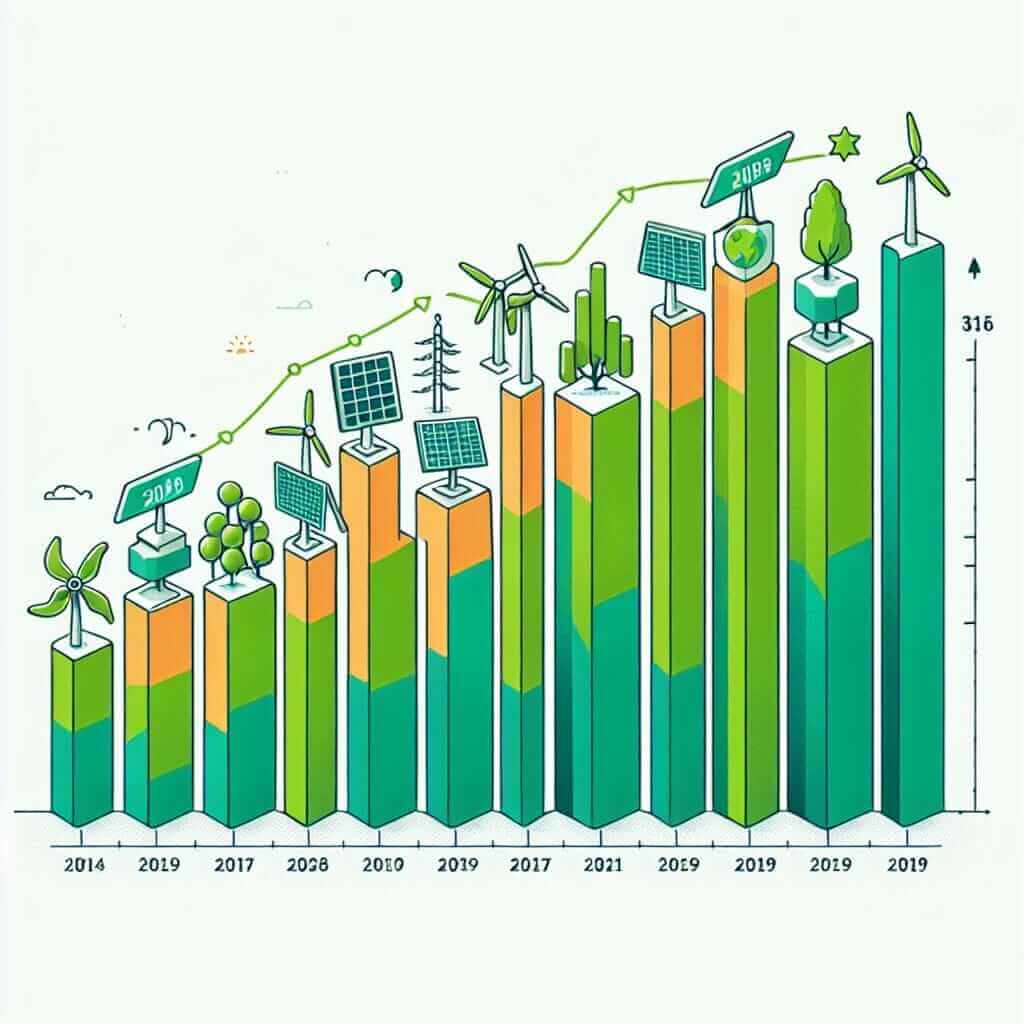The IELTS Reading section of the exam assesses your ability to understand and interpret diverse texts. Topics often span a wide range of subjects, from history and technology to environmental issues. One pertinent topic that has gained traction in recent years is renewable energy. In this article, we’ll explore “How is renewable energy adoption affecting global power markets?” We’ll also provide a sample reading passage and essential strategies to navigate such topics in the IELTS Reading section.
Renewable energy and its impact on global power markets have been hot topics over the past decade due to increased awareness of climate change and sustainability. Given its relevance, this topic could very well appear in future IELTS exams. By understanding its nuances, you’ll be better prepared to tackle similar texts effectively.
Sample Reading Passage
Renewable Energy: Shaping the Global Power Markets
The global power sector is undergoing a profound transformation, courtesy of the rising adoption of renewable energy sources. Historically, fossil fuels like coal, oil, and natural gas dominated power generation. However, escalating environmental concerns and the quest for sustainability have catalyzed a significant shift towards cleaner, renewable sources such as wind, solar, and hydroelectric power.
Economic Implications
One of the primary effects of renewable energy adoption is on the economics of power production. Renewable energy sources, characterized by their low marginal costs once installed, are increasingly outcompeting fossil fuels. This economic shift is evident in plummeting costs for solar panels and wind turbines, making renewable energy more accessible and financially viable than ever before.

Impact on Energy Markets
The proliferation of renewable energy sources is reshaping energy markets globally. Traditional power plants, reliant on fossil fuels, are facing unprecedented challenges. Renewable sources, being inherently decentralized, have introduced complexities in grid management and power distribution. Despite these challenges, the benefits are overwhelming, contributing to a diversification of energy portfolios and enhanced energy security.
Government Policies and Initiatives
Government policies and international agreements have played a crucial role in accelerating renewable energy adoption. Initiatives such as subsidies for renewable projects, carbon pricing, and renewable energy certificates incentivize investment in sustainable technologies. The Paris Agreement, for example, has been instrumental in galvanizing global efforts towards reducing carbon footprints and promoting renewable energy.
Environmental Benefits
The environmental benefits of renewable energy cannot be overstated. Unlike fossil fuels, renewable sources generate power without emitting greenhouse gases, thereby mitigating climate change. Furthermore, the adoption of renewable energy reduces air pollution, conserving biodiversity and fostering a healthier ecosystem.
Sample Questions
Question Type: Multiple Choice
- According to the passage, what is one of the primary reasons for the adoption of renewable energy?
- A) Lower costs of implementation
- B) High efficiency of traditional fossil fuels
- C) Lack of government support
- D) Increasing use of coal
Question Type: True/False/Not Given
- The costs of solar panels and wind turbines have increased over recent years.
- Renewable energy sources are centralized, simplifying grid management.
Question Type: Matching Headings
- Match the following headings with their corresponding paragraphs:
- i) Renewable Energy and Grid Management
- ii) The Economic Shift Towards Renewable Energy
- iii) Environmental Advantages of Renewable Power
Question Type: Summary Completion
- Fill in the blanks with NO MORE THAN TWO WORDS from the passage:
Government policies like ____ and the Paris Agreement encourage investment in renewable energy technologies.
Answer Keys and Detailed Explanations
- A) Lower costs of implementation – The passage states that the decreasing costs of solar panels and wind turbines have made renewable energy more accessible.
- False – The passage mentions that the costs have plummeted, not increased.
- Not Given – The passage does not specify that renewable energy sources are centralized.
- i) Renewable Energy and Grid Management – Impact on Energy Markets
ii) The Economic Shift Towards Renewable Energy – Economic Implications
iii) Environmental Advantages of Renewable Power – Environmental Benefits - subsidies – The passage mentions that subsidies for renewable projects are one of the policies encouraging investment.
Common Mistakes to Avoid
- Reading too quickly: Skim for the gist but read carefully for detail.
- Misinterpreting information: Pay attention to how details connect to the main idea.
- Not managing time effectively: Allocate a specific amount of time for each passage and stick to it.
Vocabulary
- Catalyze (verb) – /ˈkæt.əl.aɪz/ – To cause or accelerate a reaction or process.
- Subsidies (noun) – /ˈsʌb.sɪ.diz/ – Financial support extended to an economic sector.
- Decentralized (adj) – /diːˈsɛn.trə.laɪzd/ – Distributed away from a central location or authority.
Key Grammar Point
Complex Sentences
Structure: Main clause + dependent clause, introduced by a subordinating conjunction (because, although, since, etc.)
Example:
- Main clause: “Renewable energy sources generate power.”
- Dependent clause: “without emitting greenhouse gases.”
Combined: “Renewable energy sources generate power without emitting greenhouse gases, thereby mitigating climate change.”
Tips for High IELTS Reading Scores
- Practice Regularly: Consistent practice enhances reading speed and comprehension.
- Expand Your Vocabulary: A robust vocabulary helps in understanding complex texts.
- Learn Synonyms: Many IELTS questions paraphrase information, so knowing synonyms is crucial.
- Time Management: Practice under timed conditions to improve pace and efficiency.
By integrating these strategies and familiarizing yourself with current topics like renewable energy, you can enhance your performance in the IELTS Reading section. Happy studying!